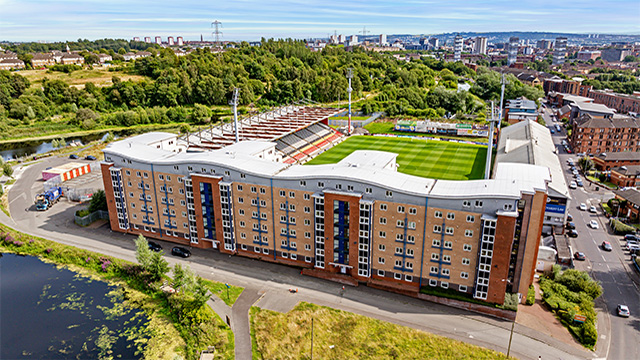Westfield’s £1bn Croydon plans ‘not viable’, judge told
A planned £1bn redevelopment of a Croydon shopping centre and surrounding sites by Westfield and Hammerson is “simply unviable”, according to the current leaseholders who are opposing the scheme in the high court.
Four leaseholders in the existing Whitgift Centre, who face the threat of compulsory acquisition of their land, are the court to quash the grant of planning permission and listed buildings consent for the major redevelopment, granted to Westfield and Hammerson in February.
A planned £1bn redevelopment of a Croydon shopping centre and surrounding sites by Westfield and Hammerson is “simply unviable”, according to the current leaseholders who are opposing the scheme in the high court.
Four leaseholders in the existing Whitgift Centre, who face the threat of compulsory acquisition of their land, are the court to quash the grant of planning permission and listed buildings consent for the major redevelopment, granted to Westfield and Hammerson in February.
Opening the case this morning, Russell Harris QC said: “The claimants are the owners and present operators of the existing Whitgift shopping areas. They take the view that the planning permission has been unlawfully granted.
“The decision maker failed to have regard to a material consideration, namely that, in whole or in constituent part, the scheme before them was simply unviable in planning terms.”
He added that the process was “unfair and procedurally irregular” because of a failure to disclose a financial appraisal, with information on viability, to his clients and other objectors.
In addition, the claimants say that the London borough of Croydon failed to take account of affordable housing policies for the mixed-use proposal, and failed to apply the sequential test.
However, lawyers for Croydon maintain that they have “mischaracterised” the information on viability of the scheme, and denied unfairness. It says that it was entitled to take steps to protect the applicants sensitive financial information, and acted reasonably in making arrangements for it to be subject to independent review, allowing only the “gist” of the information to go before members and other parties.
They say that, while a Deloitte report on viability recognised a “significant deficit between scheme values and costs”, it accepted that this was “not unusual” at this early stage of the process.
In written arguments before the court, David Elvin QC said that the report did not conclude that the scheme was “deeply unviable”, and characterised this claim as an “opportunistic” one, brought to protect the commercial interests of the Whitgift leaseholders.
In her own written arguments, Natalie Lieven QC, on behalf of the Westfield parties, argued that the “significant and comprehensive redevelopment” is “expected to secure much needed regeneration” of Croydon, representing £1bn of investment expected to generate in the region of 5,000 jobs.
She said that regeneration has been an objective of the council for many years, and is strongly supported by planning policy.
She said: “The claimants all have interests in parts of the land covered by the planning permission. Those interests would be subject to acquisition if the scheme is implemented, either through negotiation or ultimately compulsory purchase.
“This challenge is therefore entirely one about protecting and maximising the claimants’ commercial interests, and not about the provision of affordable housing or indeed the overall planning balance.”
Judge Collins J – who said he is “very familiar” with the Whitgift Centre, and commented that its status has lowered since the closure of Allders – is expected to reserve judgment in the case, which is scheduled to last two days.
jess.harrold@estatesgazette.com










